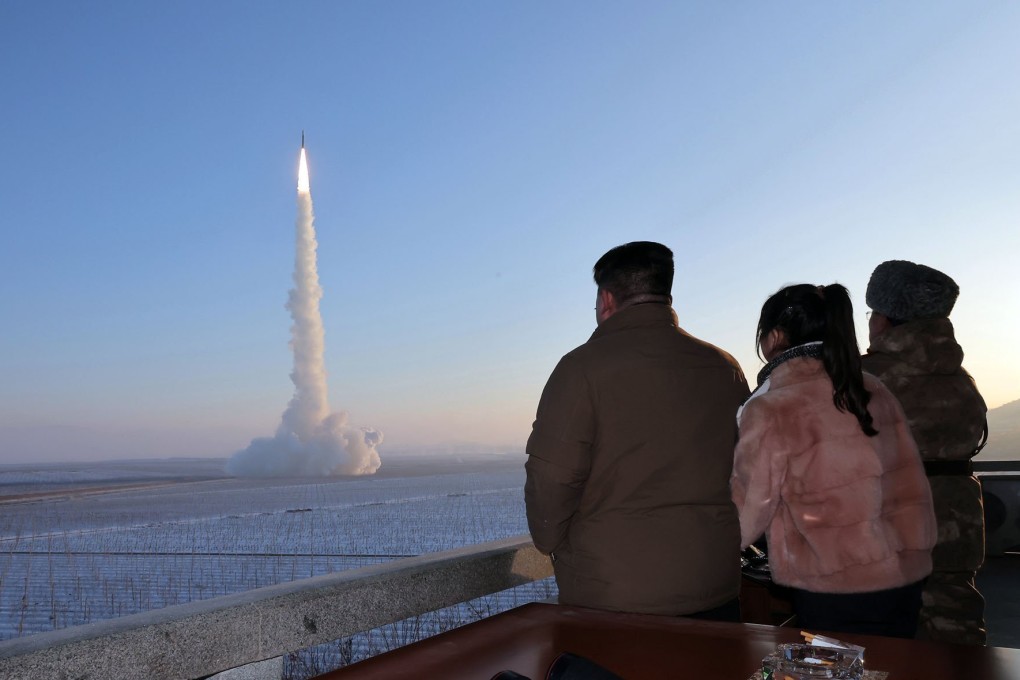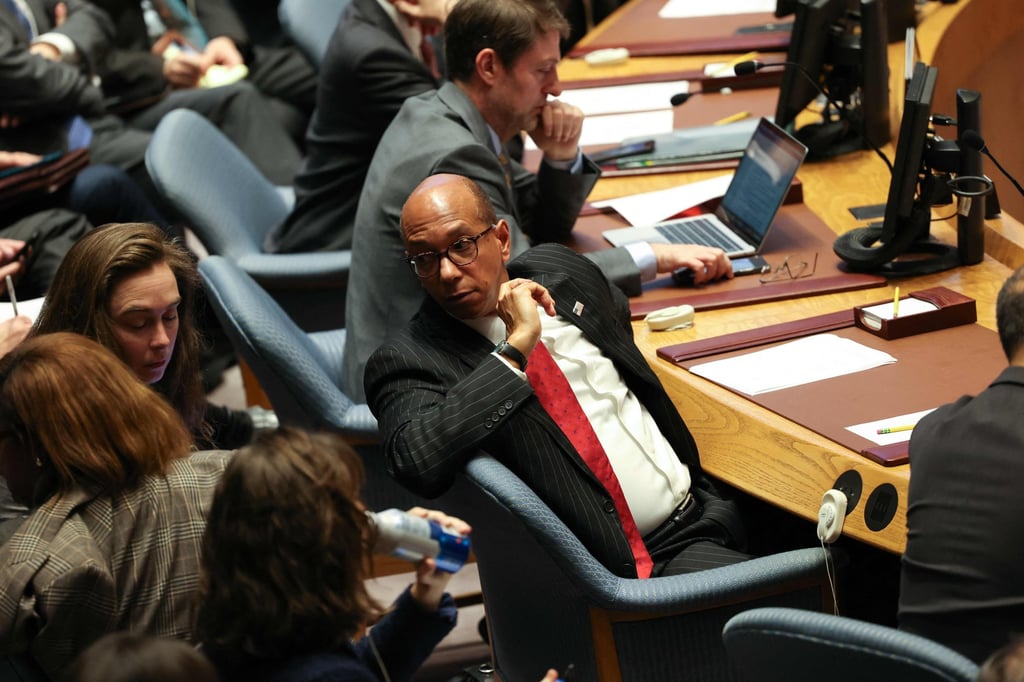Advertisement
US at UN condemns North Korean ICBM launch, as China and Russia defend ally
- Emergency Security Council meeting sees Washington calling on Pyongyang to put diplomacy over missile tests after country conducts its 31st this year
- China envoy, citing US dispatch of weapons to peninsula, warns of escalations if ‘vicious cycle of aggressive assertion of power cannot be broken’
Reading Time:4 minutes
Why you can trust SCMP
3

Mark Magnierin New York
The United States and its allies on Tuesday condemned North Korea’s launch of an intercontinental ballistic missile a day earlier during a UN Security Council meeting, calling on Pyongyang to end its dangerous conduct and instead focus on diplomacy.
But China and Russia defended their socialist ally, countering that it was American aggression – including military exercises and the recent South Korean port call by a US nuclear submarine – that sparked the crisis, not Pyongyang’s launch.
“It is on Russia and China to join us, to act as if their credibility as responsible permanent members depends on it,” said Robert Wood, the deputy US ambassador to the UN.
Advertisement
“We are here because the DPRK must understand that the only viable path forward is through diplomacy,” he added, referring to North Korea by its official name.

The meeting followed talks on Monday between top Chinese diplomat Wang Yi and his North Korean counterpart Pak Myong-ho during which the two countries reaffirmed their long-standing bonds.
Advertisement
While Russia repeatedly criticised the US by name at the council on Tuesday, China took a more indirect approach, although the object of its blame was unambiguous.
Advertisement
Select Voice
Select Speed
1.00x